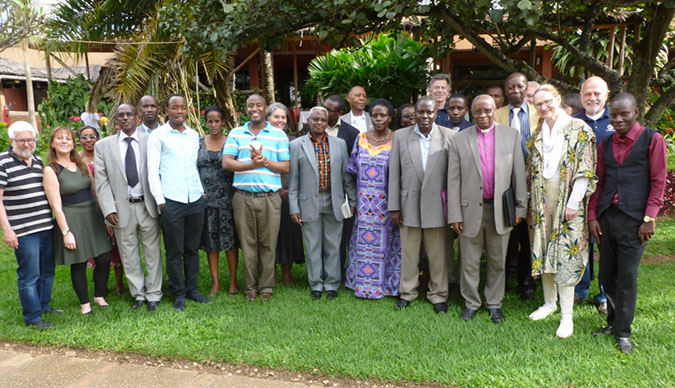Dear Friend!
In the English language, the concept of humiliation traversed a fascinating journey throughout the past centuries. It is a captivating story of ‘historical linguistics’, or philology. Greek philologos means ‘fond of’(phil-) ‘words and speech’ (logos). Philology means being fond of studying literature and the historical growth and adaptation of languages.
The year 1757 is of particular significance for the journey of humiliation. This year represents an important historical linguistic marker, a marker that signals a momentous change in the Zeitgeist first in the European cultural realm, and later globally. This marker is connected with the emergence of a form of imagining a person that might have existed much earlier in history, but had since disappeared, a form that ultimately lead up to the ideal of equality in dignity for each individual.
The year 1757 stands for the beginning of a ‘U-turn’ that first led away from collectivist honour toward the honour of a single individual, and from there it culminated in the ideal of equal dignity for all individuals – with the term decorum forming the bridge from honour to dignity. Ultimately, this development led up to these sentences in the first paragraph of Article 1 of the Universal Declaration of Human Rights, adopted on 10th December 1948: ‘All human beings are born free and equal in dignity and rights. They are endowed with reason and conscience and should act towards one another in a spirit of brotherhood’.
In former times such utterances were unconceivable (and still are in certain world regions also today). A very different version of was regarded as divinely ordained or nature-given: ‘All human beings are born unequal in dignity and rights. Some are endowed with more reason and conscience and should act towards inferiors in a spirit of superiority’. Or: ‘All human beings are born unequal in worthiness and rights – people are born into their rank and they are meant to stay there, only some might move up or down due to their own doing or undoing – and, as an unavoidable consequence, there will always be some who are more free than others, there will always be elites who preside over their subordinate collectives’.
This paper embeds the journey of humiliation and dignity into the larger context of globalisation and why the phenomenon of humiliation becomes more salient nowadays. The paper traces in what ways human rights ideals create an expectation gap that may lead to violent cycles of humiliation. The paper suggests dignism and egalisation as visions for the future.
You are invited to read more here.
Evelin, November 2015.
- Written by: Evelin Lindner
Dear Friend!
This is a story of an opera and how it applies to modern-day topics such as terrorism and economic arrangements. It starts with a brief description of the opera, then addresses how it may apply to terrorism, and it ends with a very personal and dramatic story of what happened to the author in the last break of the opera. You are invited to read more here.
Evelin, 1st November 2015
- Written by: Evelin Lindner
|
|
A Letter from Oregon
Dear Friends of Dignity,
For me, the mass shooting at Umpqua Community College in Roseburg, Oregon hit it too close to home. Not only because it occurred in my home state (again), not only because it struck another innocent educational institution, not only because my husband works at a community college, but also because I've witnessed the deterioration of a person's life that ultimately called for a swat team.
I hope all of us agree that these situations are complex; there is no simple solution, no easy answers, no short-cuts to the social change we need to prevent mass shootings. Furthermore, though I have worked in education, mental health, and social activism all of my life, I wouldn't dare to present myself as an authority on mass shootings.
Yet, I, along with my colleague Evelin Lindner, have a 25-year understanding of a particular dynamic that we consider a missing link, a common denominator in the conversation about violence.
Unfortunately, I have to start this commentary by dismantling some enormous obstacles to understanding this missing link:
- One, this missing link doesn't fit into Western notions of individualism: It is relational dynamic.
- Two, it doesn't fit into hyper-individualistic models of responsibility that allows us to conveniently offload blame and shame onto individuals, families, religions, ideologies, and politicians: It requires a courageously collaborative understanding of responsibility.
- Three, it doesn't fit into sound-bite seeking media that keep us on an emotional roller coaster of hope and despair.
Dear Friends, please allow me to defy these obstacles and name this missing link, this deadly dynamic, this all-to-common, common denominator in mass shootings: The Humiliation Dynamic (Klein, 1991) — the real or perceived experience of being demeaned, devalued, disgraced, and excluded as a human being.
If you don't get it, don't worry: The Humiliation Dynamic has long been neglected in the scientific literature, which has been limited by a highly individualistic lens.
Humiliation is a relational dynamic. It involves interactions between victims, witnesses, and humiliators. When humiliation occurs, it impacts everyone in the equation. My colleagues and I call it a “nuclear bomb of emotions” (Hartling, Lindner, Spalthoff, & Britton, 2013). Think of the humiliating excessive force we've seen used by unskilled police officers and the humiliating killing of police officers serving their communities.
Humiliation is a diverse dynamic. It is an internal experience, a interpersonal/social experience, and a systemic experience, resulting in depression, social exclusion, alienation, and, as we have seen in mass shootings, retaliation.
Humiliation is a pervasive dynamic: Playing out on playgrounds, in board rooms, and in international relations.
So what is the root cause of mass shootings?
Some say it is easy access to guns. There is a gun for everyone in America. Yes, we must do more to decrease easy access and increase gun safety. Yet, most people with guns do not shoot people.
Some say it is mental illness. Yes, YES! We must do more to support the mentally ill in our society with affordable services. Yet, most people with mental illness do not shoot people.
Some say it is chronic social conditions, e.g., poverty, racism, growing economic inequality. Yes, YES, YES! We must do more to reduce social injustice and increase opportunity for all people. Yet, most people who suffer from poverty, racism, economic inequality do not shoot people.
Answer: All of the above and something more. Even most people who experience chronic or acute humiliation do not shoot people. But some do, and we can do something about it.
We can't wait for our leaders to lead us through these tragedies, each one of us needs to plant the seeds that lead us in a new direction.
We, you and me, can understand that humiliation is a missing link in the dialogue on violence.
We, you and me, can do more to dissolve the dynamics of humiliation in its many forms of disconnection, social exclusion, and discrimination that lead people into despair.
We, you and me, can support the people, politicians, and social systems that provide the resources necessary to reduce the risk of another New Town, Aurora, or Roseburg.
Most of all, we, you and me, can plant the seeds of dignity that create healthy connections. These are the vital connections we need to not only counteract, but also interrupt the escalating and devastating dynamics of humiliation.
We can never train enough swat teams to solve this problem. Swat teams are always too late!
Building mutually dignifying connection is our best long-term protection against violence.
Thank you for your efforts to bring greater dignity into the lives of all people!
Linda M. Hartling, PhD, with Evelin Lindner, MD, PhDs
References and Appreciations:
Hartling, L., Lindner, E., Spalthoff, U. & Britton, M. (2013). Humiliation: A Nuclear Bomb of Emotions? Psicologia Politica, Issue 46, pp. 55 - 76 (http://www.uv.es/garzon/psicologia%20politica/N46-3.pdf).
Klein, D. C. (1991). The Humiliation Dynamic: An Overview. Journal of Primary Prevention, Vol. 12, No. 2, pp. 93 - 121. (please see: www.humiliationstudies.org/documents/KleinHumiliationDynamic.pdf)
Lindner, E. (2009). "The relevance of humiliation studies for the prevention of terrorism." In Home-Grown Terrorism: Understanding and Addressing the Root Causes of Radicalization Among Groups with an Immigrant Heritage in Europe, edited by Thomas M. Pick, Anne Speckhard, and Beatrice Jacuch, Chapter Section 3, pp. 163-88 (see also: http://www.humiliationstudies.org/whoweare/evelin02.php).
Human Dignity and Humiliation Studies, a collaborative global network dedicated to bringing greater dignity into the lives of all people: www.humiliationstudies.org.
- Written by: Linda Hartling

Dear Friend!
We had a remarkable dignity conference in Kigali, the capital of the Republic of Rwanda in the very middle of Africa! The conference was conducted in the spirit of the United Nations agenda toward 'A Life of Dignity for All', in the spirit of Umuganda 'coming together in common purpose', and as a tribute to Felicitas Niyitegeka, who sacrificed her life in the genocide that ravaged Rwanda in 1994, targeting Tutsi, together with moderate Hutu who were opposed to the killing.
Please see the report of the conference that Evelin Lindner wrote in June and which Linda Hartling was able to cut down from 60 confidential pages to 20 public non-confidential pages. We have received clearance of our hosts, the Rwandan Commission of Reconciliation (NURC) and Emmanuel Ndahihama, to publish the final version on our website. We have reason to believe that also the President of Rwanda will read it most attentively.
May we extend our very warmest thank-you to YOU ALL!
There are no words to express our appreciation for your amazing contributions!
Evelin & Linda, on behalf of our entire network, 28th September 2015
- Written by: Evelin Lindner




